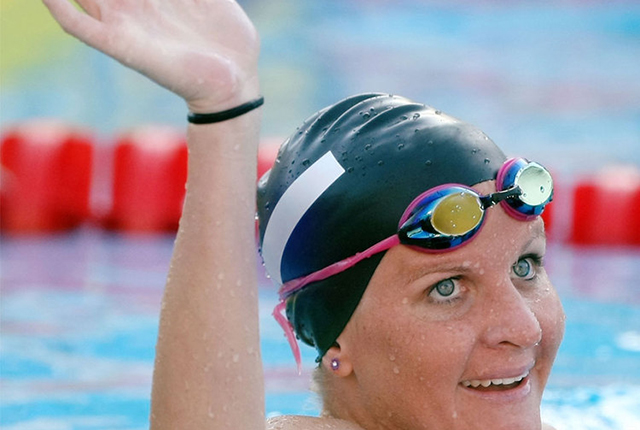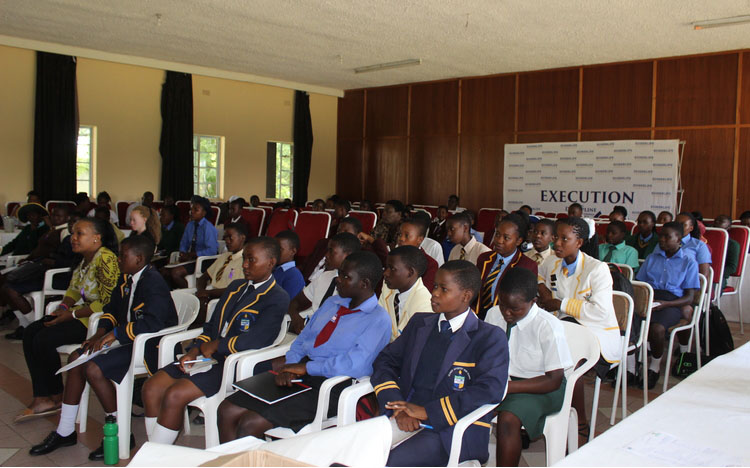The immortal Kirsty Coventry


Kirsty Coventry
NEW YORK. – This week, nine years ago as the Missouri Grand Prix got underway, Kirsty Coventry broke the 200m backstroke world record that had stood at 2:06.62 since 1991.
Egerszegi’s mark was a member of a club of rarities: records built to stand the test of time, such as Mary T. Meagher‘s butterfly standards, Janet Evans‘ distance free marks and so on.
The Hungarian clocked that 2:06.62 in Athens at the European Championships on a golden summer evening as the sun was about to set over the birthplace of the modern Olympics.
It was a sensational swim.
Fast forward to February 16, 2008 and a different kind of writing was on the wall, one that at the time was masked by the proven excellence of the new world record holder:
Coventry, in preparation for the defence of the Olympic 200m backstroke crown won in that same pool at Athens 2004 in which Egerszegi had raced back in 1991, clocked 2:06.39.
Moments after Coventry’s effort, Katie Hoff (USA) chased down Laure Manaudou‘s (France) 400m freestyle world record, missing it by a whisker in 4:02.20 to 4:02.12.
Coventry goes down in history as having shared a world record with a suit that saw poly put the kettle on in swimming speed.
On the day she took down Egerszegi’s standard there was scant and brief mention of the suit she was wearing. The overwhelming response was celebration.
That was entirely understandable: she had already written many a line in swimming history.
At 20, and coached by Kim Brackin, Coventry made history with gold in the 200m backstroke at the Athens 2004 Olympic Games, future coach David Marsh, then at Auburn University, said: “The truly exciting thing that’s happened with Kirsty’s experience is that it has completely transcended sports and the Olympics.”
Within a week of her winning Olympic gold (200 back, 2:09.19), silver (100 back) and bronze (200 IM) and becoming Zimbabwe’s first-ever swimming gold medalist, Coventry’s fame had spread well beyond the Athens pool and the Auburn campus, where she majored in hotel and restaurant management and minored in business.
Her name was heralded in the maternity wards of far-flung hospitals across her native Zimbabwe, where the majority black population took her success not only to heart but to the registry of births.
Kirsty Coventry Mapurisa and Kirstee Coventree Kavamba were among the first two babies to have the honourable name bestowed on them, but their parents must surely have regretted their lack of originality in the days that followed.
Try these out: Treemedals Chinotimba, Swimmingpool Nhanga, Freestyle Zuze, Breaststroke Musendame, Butterfly Masocha, Backstroke Banda, Goldmedal Zulu, Goldwinner Mambo, Gold Silver Bronze Ndlovu and, last but not least, little Individual Medley Mbofana.
Coventry repaid in gracious fashion the compliment bestowed on her by the many thousands of Zimbabweans who turned out to welcome home their hero after Athens 2004.
“Zimbabwe is my home,” she said in answer to questions about loyalty at the heart of a US-based success story and in relation to the race war raging at home.
“It’s where I was born. It’s my culture. I will always represent Zimbabwe. Colour doesn’t matter to me.”
Coventry, who had a tattoo of the Olympic rings placed on her right hip after making the semi-final of the 100 metre backstroke as a 16-year-old in Sydney 2000, came from a family of swimmers. Her grandfather was a chairman of the swimming board, while her parents, Rob and Lynn, were also avid swimmers.
There were a few more folk there to greet Coventry as she stepped off the plane in the wake of Athens gold. She recalled: “Then it really hit me.”
Thousands upon thousands, traditional dancers, tribal drummers, a presidential motorcade, banners welcoming “Our Princess of Sport” and cries in Shona (the country’s primary indigenous language) that Coventry could not comprehend. When she asked one of the national team coaches to translate, he said, “Give her a farm.”
A nation’s true borders lie around the human heart, of course, and Coventry has always been patriotic Zimbabwean.
“I am ecstatic,” she said after 200IM Commonwealth Games gold in Manchester in 2002.
“Hearing the national anthem from the podium made me feel so proud to be a Zimbabwean.” Her homecoming party and parade back in 2004 reflected mutual feelings, people and “sports princess”.
“It was very, very overwhelming,” Coventry would say sometime later. “I felt so much pride, seeing how much it meant to so many people. It really brought tears to my eyes. There were no political issues.
“There were no racial issues. Everything was put aside for a few days so people could celebrate. It was so nice to meet so many people all happy for the same reason. Hopefully, it will carry on like that.” – SwimVortex.com.








Comments